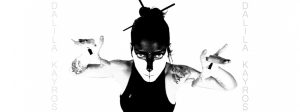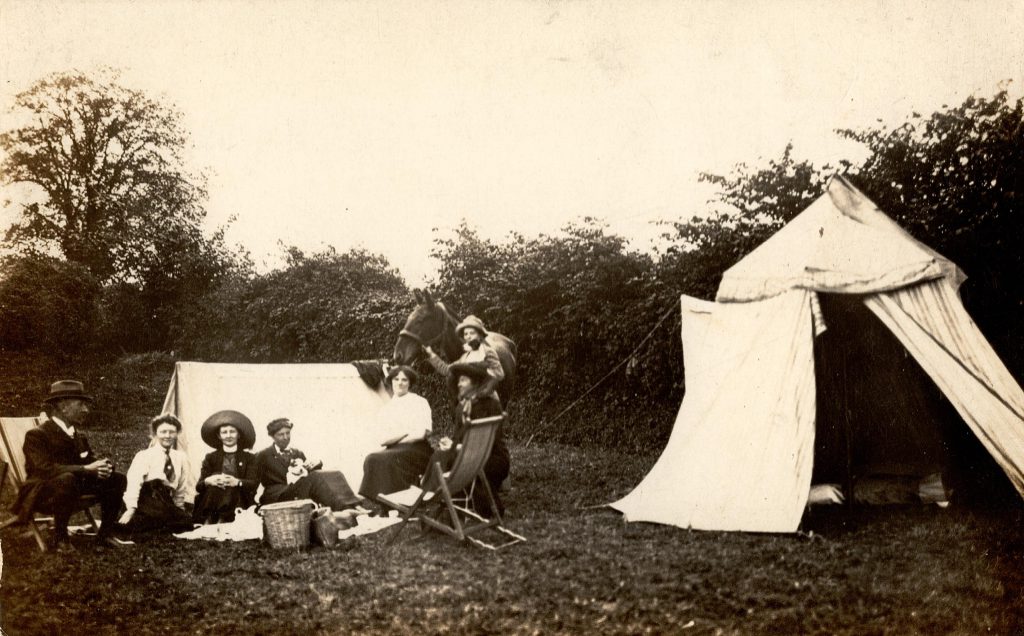Crossroad Radio – Podcasts
Tous les podcasts de l’émission. Soon sur le Mixcloud de Radio Campus (dès que je saurai me connecter).
On se retrouve le prochain quatrième mercredi du mois entre 21h30 et 23h. La bise à tous !
Comments off
Retrouvez ici certains enregistrements de nos émissions. Le paiement des droits d'auteur est totalement prohibitif pour une structure comme la nôtre: vous ne trouverez donc ici que des émissions dont la musique possède une licence d'utilisation libre. Celles qui contiennent des morceaux dont la SABAM et la SIMIM ont la garde ne s'y trouvent donc pas.
Tous les podcasts de l’émission. Soon sur le Mixcloud de Radio Campus (dès que je saurai me connecter).
On se retrouve le prochain quatrième mercredi du mois entre 21h30 et 23h. La bise à tous !
Comments off
Nova Twins – Elephant
Demdike Stare – Curzon
Terminal Cheesecake – The Winding Path
Drab Majesty – 39 by Design
Mansfield TYA. – Mon amoureuse (FR)
Les Trash Croutes – Totale éclipse du coeur (FWB, FR)
Comments off
#café central – Dalila Kayros + Xover

#Barlok Mhönos, Alahuta, Ritual Extra, PISITAKUN
#offscreen ouverture / vase de noce / kuso /week end godard
#vk concert – Oh my lady
ROXY SHEARCH IN LOVE (ENAEL MUSIC EDIT)
Lidy Fa – Chant Lexical ‘ Raprise II
Projection associative »La part sauvage » au vendome 15 mars
PRIESTESS – « Maria Antonietta » (Prod. Ombra & PK)
#BUNKER mercredi du fanzine -#10 K7 nghe en écoute !
chocoslip en concert ce week end !
Lucio Bukowski & Milka – Si Chopin avait eu une MPC, Baudelaire aurait rappé
Cocaine Piss – The Dancer
Diffusion de la discussion avec les lentillières du 1er Mars à la senne (bxl)
Georges Moustaki – Sans la nommer

Comments off
Clemix – Je suis fâchée (Fr, FWB)
Ropoporose – Horses
Jessica 93 – Mental Institution
Usé – Respire (Fr)
Arteradio.com : Sex and sounds 2 : La voix des sextoys
Une création de Maïa Mazaurette
Que diraient les sextoys s’ils pouvaient parler ? Nous raconteraient-ils les cochonneries qu’on leur fait subir, protesteraient-ils contre leur condition d’objets sexuels – voire d’esclaves à la merci de nos derniers outrages ? Pas du tout. Parce que certains sextoys ont des voix intégrées, ils nous racontent, en creux, ce que nous aimerions entendre. Attention, ce podcast contient des voix d’hommes gutturales chaudes comme la braise. Et pas mal de vibrations.
Chronique LGBTQI+ : Le porno lesbien
Kevin Chomat – Issue de secours (Fr)
Mademoiselle K. – Fringue par fringue (Fr)
White Hills – A Trick Of The Mind
Comments off
Cloé du Trèfle – Cet air lanscinant (Fr, FWB)
The Magnetic Fields – They’re Killing Children Over There
Colin Stetson – All This I Do For Glory
Astonvilla – Coming Out (Fr, FWB)
Zazie – Adam et Yves (Fr)
Les Ogres de Barback – Jérôme (Fr)
Monis feat. Léa Milh – A nos actes manqués (Fr)
Laurent Boudin – Ostende (Fr, FWB)
Il est Vilaine – Golden Shower (Fr)
Comments off
Kim Ki O – Son Hata
EDH – Crime Time
Juliette Greco – Le monsieur et le jeune homme (Fr)
Charles Aznavour – Comme ils disent (Fr)
Stephan Eicher – Pas d’ami comme toi (Fr)
Arthur Conley – Sweet Soul Music
Sam Cooke – Bring It On Home To Me
James Brown – This Is A Mans World
Aretha Franklin – Try A Little Tenderness
Comments off
S O N I C P A N O R A MA S
Saout Radio for Ifa Galery, Berlin
For the 2017 program at Ifa Gallery Berlin, Saout Radio proposes a sonic travel into the universe of sound art exploring its different possibilities, the richness of its languages and the multitude of its sensuous experience. Traveling from radio and sound art to video and interventions in the public space, the program proposes an understanding of sound as a political and aesthetic contamination, as a delocalised and delocalising practice that, by moving across different geographies is capable of translating there other cultural and mental places. A space that through listening, seeing and sensing calls us to think critically, while creating enriching interactions and exchanges. Starting from the double sense of the word panorama, as a wide view on a speci c subject or scene, but also as on overview on a speci c landscape, “Sonic panoramas” proposes multiple approaches to sonic arts from different generations of artists, for creating multiple aesthetic experiences for visitors and for opening a space of re ection about how sound can translate geographies over and beyond boundaries. In these propositions, becoming sonic, the panoramas will no longer need observers, but participants : subjects, who share and contaminate mental and physical geographies, are thus invited to engage and deconstruct stereotypes for generating expanded forms of geographies and views.
www.saoutradio.com
– – –
To be or not to be. Being, becoming. Identity has turned into one of the most politicized and slippery spaces. Philosopher and poet Eduard Glissant recognizes Identity is not a monolith idea.
We are, because we are in relation with the other. Our roots are like the ones of a plant or a tree, they make us grow by the meeting of other roots and they meet like crossing hands.
Guided by these ideas Saout Radio propose one hour immersion in a sonic panorama, exploring the notion of identity through diffe- rent languages and formats, through different sensibilities and voi- ces and also one video screening with the video “Complementare” by Italian artists Bianco Valente.
Radio show on audio art curated by Younes Baba Ali and Anna Raimondo for Saout Radio commissioned by Alya Sebti for Ifa Galery, Berlin
To listen at Ifa Galery from the 30th March to 11th June 2017
Written and edited by Anna Raimondo
Jingle & music selection: Chloé Despax
English translation: Jennifer Herth
Design: Stefan Pollak
Artists: Hannibal Andersen (Dk), Younes Baba-Ali (Ma), Maria Bala- bas (Ro), Youssef Ouchra (Ma), Karen Power (Ir), Anna Raimondo (It), Sama Waly (Eg), carte blanche to Radio Papesse (It)
– – –
PLAYLIST :
Tout le monde s’appelle Mohamed
Younes Baba-Ali (Ma), 1’29’’, 2013
Imagine a sound that could not only be produced but also heard by the listener, a sound he could physically and instinctively react to. Imagine a direct form of interaction based on sound. This is the beginning of this piece, where, in the street, a voice calls “Moha- med”, an exclamation addressed to any unknown male. A frank and brutal call which lls the gap left by the radio medium, where you can only imagine the listener’s feedback.
In the gap
Hannibal Andersen (Dk), 7’21’’, 2014
In my little seat, in this machine made of metal, I am destined to wait while I am being transported towards my destination. I am forwarded, swiftly, yet my body remains still. My senses unfold and sharpen as time and distance collapse in the gap between A and B. There is no letter between A and B, only a gap. And In this gap, I discover the subtle harmonics in the humming of the engine. There is nothing between these harmonics either, except the ever- present background noise, demanding my attention.
Untitled (the stranger, the water and what I am)
Anna Raimondo (It), 1’31’’, 2012
“(…) Anna Raimondo is aware that every de nition is a limitation, a frontier in itself, something that unites but also separates, that can be impermeable. A stranger splashes her at each de nition she declares about herself as a woman, as a feminist, as an italian, as an artist in a metropolis such as london… each water bucket thrown against the performer carries the innocence and violen- ce of games. By the way, being soaking wet, being baptized, are themselves rites of passage, alluding to uidity, instability, perma- nent changeability. The action here aims at approaching one of the thorniest issues of the time: if identity has effectively become the battleground of political confrontation, what should we expect when nding that no space for self-de nition is any longer availa- ble?” by Maria Iñigo Clavo
Monologue
Sama Waly (Eg), 4’16’’, 2014
A bodiless voice speaks in rst person, in attempt to de ne ‘I’ … When a voice becomes ‘nothing’, in this nothingness is reborn as language, it transforms into a breath, and eventually reaches silen- ce; you have witnessed the existentialist crisis of language.
Glissando Papesse
Radio Papesse (It), 10’, 2016
A journey into Radio Papesse sonic archive in response to Glis- sant’s approach to relational identity.
Letizia Renzini, Bird Listening // Pierre Garnier, Anthropologie, courtesy Mart, Archivio del900, Fondo Denza // James Webb, Le Marché Oriental (Radio Mix) // Joseph Young, Oxford Street Prea- cher // Aurélie Lierman, Kariakoo // Alessandro Bosetti, Life Expec- tation // Dj Spooky, System Error: Al-Yamamah Mix // Arto Lindsay, Multinatural [Blackout], Sounds from the parade // Alyce Santoro, Gargles in the rat-race choir // Ann Heppermann, Kara Oehler & Jason Cady, Chorus of Refuge // Derek Piotr, Dust_Hum // Adam Leech, Speech Bubble // Falke Pisano, 29 decisions for a time capsule radio piece // Damir Niksic, If I wasn’t muslim
Expiration récurrente
Youssef Ouchra (Ma), 2’33’’, 2013
Breath out, breath out again… Breath out in search of a limit. Fill in the creases. A bag full of breath. Whisper in the veins. Breath the va- cuum in and breath out, and breath out again. A regular exhalation.
Limitele Limbii Mele
Maria Balabas (Ro), 28’41’’, 2015
Ludwig Wittgenstein’s text is the starting point for this artistic ap- proach. I wished to research empirical the semantics which this phrase can receive through the simple translation from one langua- ge to another. For this, I used the social media and the foreign lan- guages departments of the Romanian Broadcasting Corporation. O used every recording people sent me and the result is this colla- ge in which Wittgenstein means not only translation, but different intonations, multiple recording mediums, an invisible international community connected through the very simple response to the question “How would you translate in your language the limits of my language mean etc etc…”
Fried rice, curried chips and a diet coke
Karen Power (Irl), RTÉ , 10’32’’, 2008
In recent times, I have become very interested in using the sound of words and syllables as musical material. I wish to draw on Trevor Wishart’s view in support of my approach to words and language in the context of this piece. ‘I am going to propose that words never ‘mean’ anything at all. Only the people ‘mean’ and words merely contribute toward signifying peoples’ meanings
Comments off